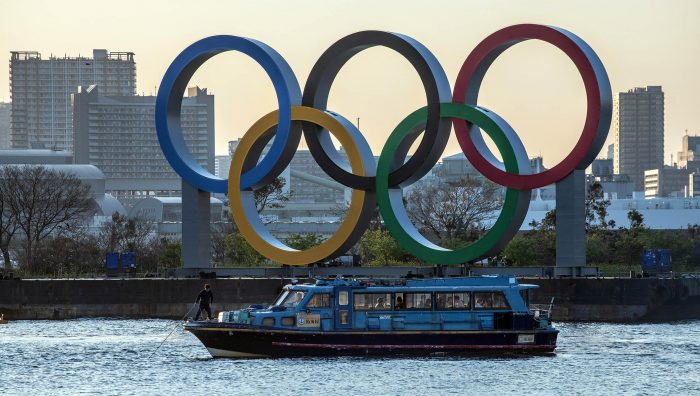No matter how carefully you plan for an event, how much lead time you allow to ensure success, how many contingency plans you put in place, a VIP or celebrity can often let you down at the last minute. Delegates at a conference expect to see and hear noted speakers – eminent professionals in their own field who can pull in a crowd with their wisdom, wit and knowledge. Sophisticated delegates also expect to be entertained by someone who has established significant credibility as a performer. Inviting a dignitary such as Tony Blair, Michelle Obama or Bill Clinton to address your event will not only ensure bums on seats, it will attract media attention and raise your public profile. Having Hugh Jackman close your gala dinner with a song-and-dance routine will raise you to hero status in your industry… but good luck pulling off that feat.

Politics and protocols
Political leaders are often targeted to open, close or address formal gatherings such as conferences, but getting them on board is not without its trials. A catch-22 situation often exists in that to attract a decent delegate attendance you must have some noted speakers, but those noted speakers (such as political heavyweights) will only attend if there is a worthwhile target audience. In the chicken-and-egg game of conference organising, keeping both parties happy and interested is a challenge.
Politicians often see benefits in accepting an invitation to a particular event. Being seen mixing it with ground-breaking scientists or world-changing philanthropists is good for a photo-op, and their advisors and aides may quickly accept or reject an offer to speak based on your approach. More often than not, though, it can take months or even years to gain a firm commitment from current serving politicians.
According to Janetta Stones, local director for the Parliament of the World’s Religions, which is held every five years in a major city and attracts more than 8,000 delegates, her organisation invested countless hours ensuring correct protocol was observed.
“We had an extensive list of political and religious leaders from all over the world attending. The closing ceremony was officiated by the Dalai Lama. We were conscious of political correctness in the true sense of the words, and apart from the comprehensive security measures we installed, there were certain protocols that were essential.”
Protocol conventions dictate the manner in which politicians and dignitaries are approached and invited to attend events. First, research must be conducted to see who is the most appropriate person to be invited – a health minister for a medical conference or a resources minister for a mining conference, for example. Second, a formal invitation must be sent, addressed according to accepted protocol. “Making the right connections and keeping lines of communication open with various dignitaries’ staff is essential,” adds Stones.
In most cases, a politician will require detailed information in order to assess whether it will be possible, appropriate or prudent to attend. This might include: whether they are the keynote speaker or not; who will be in attendance – from other political parties to other VIPs and audience members; a full brief on the host organisation and the conference theme and purpose; and of course specifics like date, time, location, transport, etc.
But while a politician may accept an invitation months in advance, even a firm acceptance should never be counted on as being guaranteed. The extraordinary commitments of their public role come first and will always be given priority. Emergencies, unforeseen circumstances and current events will dictate their availability right up to the very last minute. Expect the worst.
Finally, if a big-time political figure is invited to open your event, don’t expect them to stick around for all the remaining ceremony. The usual MO is to fly in, say a few well-chosen words, and fly out.
Star power

Sometimes it’s easier to deal with a celebrity than a politician… and other times it can be torture. Usually, the bigger the name, the bigger the price tag. And with a big price tag comes a big ego, which usually translates into a big rider.
Celebs love riders. It’s their way of saying: “You want me? Then pay me and pamper me.” A rider is an attachment to their contract that spells out all their specific requirements and conditions. While not all celebrities have a raft of outrageous demands, many, usually performers, present riders that include a list of “necessities” that they just couldn’t possibly perform without.
For example, famous rock singer Meat Loaf was reported to demand that before a gig, his dressing room spread must include a loaf of 100 per cent multigrain bread (preferably Vogel’s Flaxseed & Soy), two bags of potato chips, a pack of low-fat chicken or turkey wieners, four Gala apples (specifically, hard and crunchy ones), four low-fat fresh-baked muffins, steamed broccoli and green beans amandine (not too soggy), a sliced roast pork tenderloin, a sliced roast beef tenderloin, and two baked potatoes.
Peter Jones, from international events company Peter Jones Special Events, is philosophical about riders and knows only too well the demands placed upon organisers by celebrities. “I always get a chuckle from these riders and I’ve worked out the general rule. It’s all in proportion to ego. The bigger the ego, the more outrageous the demands.”
A favourite for a major celeb is to include absurd clauses such as: “No eye contact should be made by crew or staff.” Construction of specific buildings has been demanded so that megastars will not be seen by the lowly public when moving from dressing room to stage. Rooms of white lilies, outrageous catering requests, even a choir of cherubic children of varying nationalities in the dressing room have been included as conditions in the riders of some rich, famous and ostensibly talented stars. But at the end of the day, admits Jones, “if that’s what it takes to get a celebrity on board, we have to wear it”.
Mind your manners
Creating a guest list of VIPs requires more than just a well-stocked address book. Ensuring that no embarrassment is caused by clashing opinions – whether political, historical, religious or cultural – is paramount.
Entertainers perform across a broad spectrum and care must be taken to ensure that the content of their act does not cause offence. Lady Gaga recently cancelled a series of concerts in Indonesia in the wake of potential “chaos” promised by Islamic hardliners who considered her material offensive to their beliefs.
While it’s doubtful any conference or meetings event would have the budget to secure someone of Gaga’s calibre (and price tag), the risk of offence by lower paid acts remains. Many comedians are particularly fond of using offensive language and struggle to differentiate between the variations in the profile of their audiences. The material used for a gig at a local Gen Y bar, where profanities are the norm, may not go down quite as well at a corporate performance. It’s therefore important to brief the performer and research their material before engaging their services.
Cultural sensitivities must also be taken into account. Security measures enforced at many venues prohibit anyone from carrying weapons, but cultural and symbolic items such as a kirpan, the ceremonial sword carried by Sikhs, must be excluded from conventional security protocol if the situation demands it. It would be embarrassing for your guest speaker to be turned away at the door because of his religious customs.
Inviting a dignitary such as the Dalai Lama to speak at an event will require adherence to strict security provisions. It will also require tact and diplomacy in considering any potential clash with the beliefs or political philosophy of other nations.
Generating a list of VIPs requires research, patience, planning, diplomacy and perseverance. The greatest advice given to planners is to have a Plan A, a Plan B, a Plan C and continue down the alphabet until all possible contingencies are covered.
IT'LL BE ALL RIGHT ON THE NIGHT
Sometimes things come up at the last minute, sometimes people just forget to turn up. Here are some tips to make sure your people deliver:

- Develop a good relationship with your speaker’s personal assistant.
- Send a running sheet and send updates (they need to know minute by minute).
- Confirm at regular intervals – six months, one month, one week, one day.
- Give specific details of what is expected.
- Get their assistant’s mobile phone number. Put it in your speed dial.
- Ring them two hours out, one hour out and 15 minutes out to check their progress, whereabouts and ETA.
- Have the appropriate dignitary meet and greet them (check the protocol).
- Know the backup plan. Who will substitute in the event of an unforeseen circumstance?
MANY A SLIP TWIXT CUP AND LIP
Planning years ahead is a good thing, but it can also be your downfall. Right up to the minute they’re about to walk on stage, any of the following situations could happen to your VIP, political leader, entertainer, keynote speaker or celebrity (in brackets are VIPs who suffered that fate):
- Lose office (Kevin Rudd)
- Be impeached (Bill Clinton)
- Go to jail (George Michael, Boy George, Garry Glitter, Jeffrey Archer, Alan Bond)
- Die (Audrey Hepburn, Princess Diana, Whitney Houston)
- Fall ill (Justin Bieber, Rihanna)
- Fall from professional grace ?(Meat Loaf, Whitney Houston)
Or they might simply get a better offer – it does happen.


